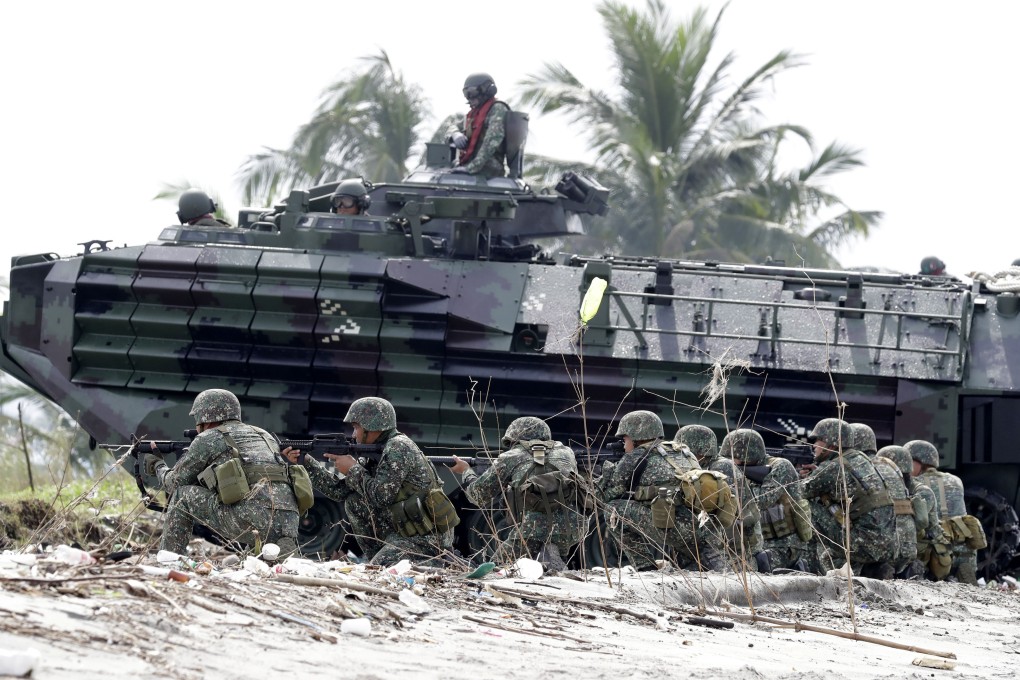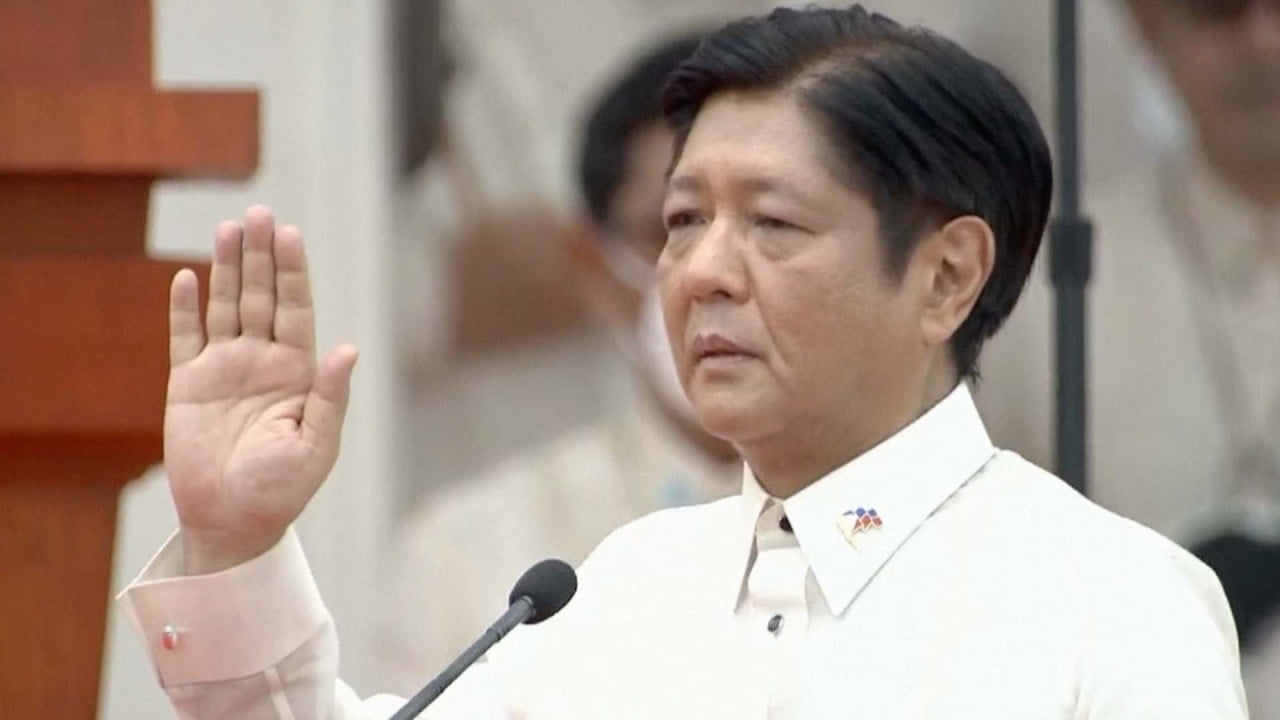Advertisement
Asian Angle | Marcos must tread cautiously as US and China seek to reset ties with the Philippines
- The US is likely to dangle greater defence cooperation and capital, while China will pledge continued support for the Philippines’ infrastructure plans
- Advancing defence ties with Manila’s treaty ally, but avoiding antagonising its largest trade partner, will be a difficult balancing act for the Marcos administration
Reading Time:4 minutes
Why you can trust SCMP
2

As newly-inaugurated President Ferdinand “Bongbong” Marcos Jnr, son and namesake of the former Philippine strongman, begins forming his trade, security, and foreign policies, the United States and China are expected to seize the chance to reset ties amid a competing rivalry for influence.
Advertisement
Presidents Joe Biden and Xi Jinping were among the first world leaders to congratulate Marcos Jnr days after his electoral win. US Deputy Secretary of State Wendy Sherman became the first high-ranking foreign official to meet Marcos Jnr on June 9, shortly after he was declared president-elect. Not to be outdone, Chinese Foreign Minister Wang Yi was the first top-ranking foreign official to visit Marcos Jnr after he was sworn in on June 30.
Both the US and China sent representatives to attend Marcos Jnr’s inauguration in Manila. The American delegation was headed by Second Gentleman Douglas Emhoff, husband of Vice-President Kamala Harris, while Beijing was represented by Vice-President Wang Qishan. The Philippines’ ambassador to the US, Jose Manuel Romualdez, said on July 3 that Biden had invited his Filipino counterpart to visit the White House, though no schedule had yet been set. This makes Washington the first to extend such an invitation to Manila’s new chief executive.
Both the US and China are important partners for the Philippines, but its relations with both have their fair share of bumps.
Manila is Washington’s longest-tenured treaty ally in Asia, and the 70-year alliance remains a pillar of its external defence. The US is also a major market for the Philippines’ burgeoning business process outsourcing industry, and Manila is keen to attract more American and foreign capital diversifying away from China or expanding into Southeast Asia.
But the Duterte administration’s anti-US rants and human rights criticisms against its controversial drug war frayed ties between Manila and Washington in the last six years. China, on the other hand, is the Philippines’ largest trade partner, a huge investor and an increasingly important infrastructure builder. But it is also a fellow disputant in the South China Sea, and untoward sea incidents continue to mar ties.
Upcoming projects

Advertisement

